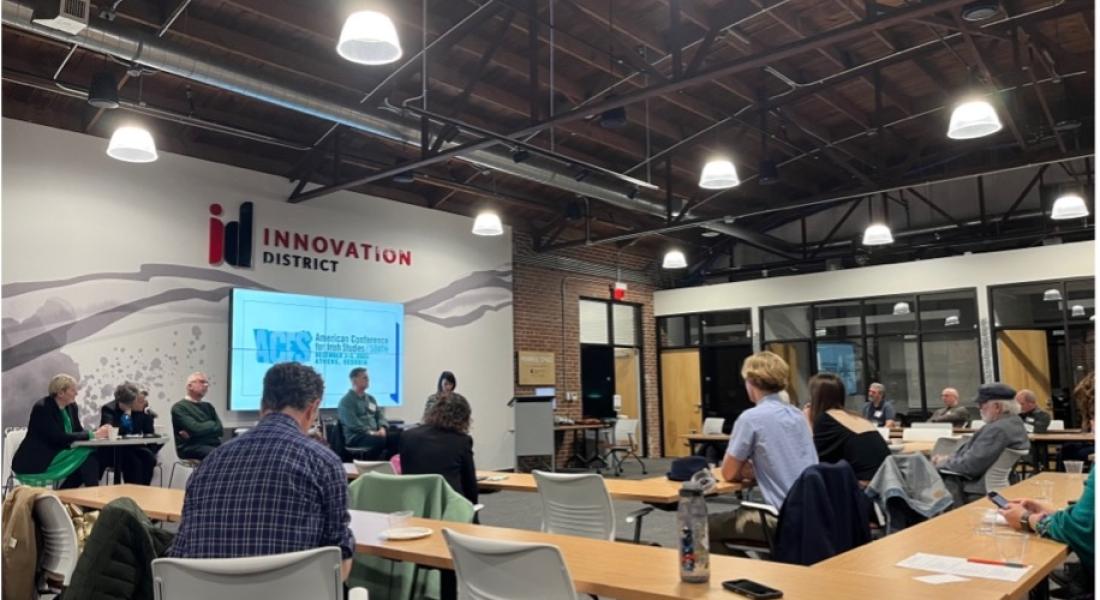
In early December 2022, the American Conference for Irish Studies held their Southern conference at the University of Georgia in Athens, Georgia. As an Irish Studies student, this conference appealed to me as a way to explore the interdisciplinary subject at a deeper level, but also as a chance to meet academics working in a space I’m really interested in. Attending the conference, then, not only gave me concrete insights into topics I now want to explore in far more depth, but also allowed me to envision what a career in academia could look like. In this way, attending ACIS opened my eyes to the field of Irish Studies on the ground and left me excited for what lies ahead.
Given my work in the Kellogg International Scholars Program with Professor Ó Conchubhair and my own interests in the spaces of identity and migration, I knew that I would get a lot out of this conference because of its specific focus on identity. Moreover, as an introduction to academic conferences, ACIS- South was ideal because of its small size and informal structure. Divided into panel discussions and roundtable conversations I was encouraged to participate in, the conversations flowed naturally aspanelists focused on discussion topics like Ireland and the American South, Partition and the Future, and Queer Politics across Borders. These topics, as well as others that focused specifically on women’s health and environmental humanities were highly interesting, but the informality of the conference also meant that I got to hear unstructured insights that I might not have otherwise.
One of the most interesting conversations I listened to concerned the Northern Irish border, with panelists discussing ways in which border crossing is not just a singular action but is instead a process which lasts for the long term, people repeatedly re-crossing the border as their identities shift and change over time. In a similar way, the panelists talked about the border in terms of death, the act of dying becoming a border between the living and the dead, and border crossing a futile if impassioned attempt to cross from one state to another, this migration only ever permanent. This latter interpretation of the border was part of one of my favorite parts of the conference, the arts and literature aspect. As a political science student, I was initially most attracted to the political panels, with topics like nationhood, partition and unification piquing my interest, but what surprised me was how fascinating the discussions on art and literature were, especially where the panelists highlighted the overt connections between both
politics and art.
On both nights of the conference there were poetry readings by conference attendees in downtown Athens, and this ended up being my favorite part of the experience. I was surprised by how much I not only connected with the poetry but also by how much I was encouraged to seek out the poets and the other conference attendees to discuss it afterwards. This was where the small size of the conference really came into play, because the informal conversations with academics and other students ultimately stand out to me as the most impactful part of my experience. I not only learned a great deal from them but got to share my own thoughts and ideas on the discussion topics, which has left me with much to think about and consider as I look to the future.
As a whole, my experience at the American Conference for Irish Studies was hugely fulfilling and has certainly had a long-term impact on me, not just in the concrete academic sense but also because of the people I was able to meet and the relationships I was able to build while there. As I look ahead to writing a senior thesis and pursuing research in this area, I know that the insights I gained while attending ACIS-South will certainly stay with me for the long-term.





